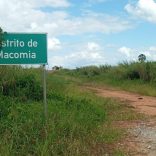Mozambique: Police shoots woman "by mistake" in Maputo's Xiquelene, bullet "grazed" her arm - Lusa ...
Mozambique : Privinvest refutes corruption charges, wants case dropped

File photo: AIM
The shipping group Privinvest on Friday refuted the accusation of corruption by Mozambican public officials in the closing arguments of the Mozambique debt trial taking place at the Commercial Court in London and asked for the case to be dropped.
Duncan Matthews, lawyer for Privinvest and the owner, Iskandar Safa, said at Friday’s hearing that the accusations by Mozambique’s Attorney General’s Office were not proven because it failed to present official documents or implicate important figures, such as the current President Filipe Nyusi.
The lawyer highlighted inconsistencies in the indictment, which names officials and figures associated with the government, such as former Finance Minister Manuel Chang, former head of the State Information and Security Services (SISE) António Carlos do Rosário or the eldest son of former President of the Republic Armando Guebuza, Ndambi Guebuza.
“There are a number of individuals, some signatories to Mozambican contracts, who are not accused of corruption. Entire government ministries, the central bank, a large part of the country’s bureaucracy, who were involved, who were aware of the documents,” he pointed out.
As minister of defence at the time (2008-2014), “President Nyusi was at the centre of everything,” he said, referring to his involvement in preparing projects and discussing contracts for the purchase of boats and equipment for the security of the Exclusive Economic Zone.
In addition to Nyusi, Privinvest believes that former officials such as the current prime minister (former minister of economy and finance), Adriano Maleiane, former minister of the interior Alberto Mondlane, former minister of fisheries Victor Borges or the former governor of the Central Bank of Mozambique, Ernesto Gove, should have been questioned in this case.
The head of state refused to testify, claiming diplomatic immunity, but a favourable decision will be appealed in February 2024.
“This case continues to be that of a remorseful buyer who, for political reasons, decided to try to keep a series of very valuable pieces of equipment without paying for them,” Privinvest summarises in its written submissions, recalling that it was the government that identified the need to defend and exploit its Exclusive Economic Zone.
The shipping group rejects having paid bribes to public officials, including former Finance Minister Manuel Chang, to enable the contracts and state financial guarantees that unblocked the funding, arguing that they were payments for services and investments in the African country.
Privinvest recalled that the contributions it made at the same time to the political campaigns of Frelimo and Filipe Nyusi were not considered illegal and that the attorney general does not classify these transactions as bribes to former President Armando Guebuza or his successor.
“If the republic manages to prove that Privinvest made illegal payments to Mozambican officials, this means that payments in favour of President Nyusi were also made and received illegally. President Nyusi will, therefore, be liable to the republic for the same damage as Privinvest, based on the same material grounds as the Mozambican officials,” it alleges.
The case of the “hidden debts” dates back to 2013 and 2014, when Chang approved state guarantees on loans to Proinducus, Ematus and MAM from the banks Credit Suisse and VTB, without parliament’s consent.
Uncovered in 2016, the debts were estimated at around $2.7 billion (around €2.55 billion), according to figures presented by the Mozambican Public Prosecutor’s Office.
The scandal led the International Monetary Fund (IMF) and other international donors to suspend support for several years. Mozambique has accused Privinvest and its owner of corruption and is demanding $3.1 billion (€2.9 billion) to cover costs and other financial commitments arising from the debts assumed.
Prior to the trial, the Mozambican government reached an out-of-court settlement with the UBS group, owner of the Credit Suisse bank, which resulted in the forgiveness of around $450 million (€417 million) to the African country. Closing arguments will continue until 21 December, but Judge Robin Knowles’ decision is expected to take several months to be announced.













Leave a Reply
Be the First to Comment!
You must be logged in to post a comment.
You must be logged in to post a comment.